Co-chaired by Fox adjunct professors (and brothers) Chris and Marty Kearns, the conference hosted a diverse array of Temple students and industry professionals. All were eager to engage with the panel of eight speakers and collectively answer the question: What are the lessons from the front lines of the cyber war, and how does one apply these lessons to business strategy?
“Many conferences are solely technically-focused,” said Chris, Program Director at Lockheed Martin, which specializes in aerospace and defense. “Instead, we wanted to create a dialogue between businesses, large and small, bridging traditionalist cyber-defense with ‘hactivism’ and organizing. The conference connected the dots between all kinds of groups.”
Titled Lessons from the Edge: The Strategies of Cyber Security, the half-day event sought to broaden participants’ understanding of the ways in which battles in cyberspace are reshaping professional careers, business opportunities, policy, nonprofit work, and technological innovation.
“Cyber security impacts people,” noted Marty, President and CEO of Netcentric Campaigns. “[It also impacts] politics, news, law, and the bottom line.”
Keynote speaker Lee Holcomb, Vice President of Strategic Initiatives at Lockheed Martin, provided an illuminating history of cyber security within its broader government context, noting its formidable power in the realm of national security. He advocated its widespread implementation, and expounded on Lockheed Martin’s approach to diverting threats both within the government and private industry.
“The passion, experience, honesty, and professionalism of each panelist were universally appreciated,” said Marty.
There was a curricular component to the conference, as well, as many student-attendees are currently enrolled in the Kearns’ popular Cyber Warfare course, taught within Temple’s ITACS degree. The conference was designed to complement and bring to life the class’s methodologies and case studies in an interactive way. “We wanted to help students tie our course work and reading directly to stories of the professionals and companies [on the front lines],” said Marty.
Never resigning to oversimplification, the Kearns’ Cyber Warfare course delves deeply into the polarizing and varied nature of cyber security and its real-world applications. When interviewed, Chris and Marty acknowledged—and, in fact, highlighted—their divergent approaches: Chris’ role at Lockheed Martin, an industry leader in national defense, sits at the opposite pole from Marty’s role at Netcentric Campaigns, whose function is one of advocacy, activism, and organizing.
But these differing viewpoints, say the pair, only serve to strengthen their teaching.
“Preparing for [our Cyber Warfare class], Chris and I have assigned each other loads of reading,” said Marty, “and the intersection of our perspectives has been fascinating.”
This multiplicity was strikingly apparent during Lessons From the Edge, as well, where oppositional stances were not glossed over, but rather investigated. Panelists ranged from Eva Galperin of the Electronic Frontier Foundation (a nonprofit that defends civil liberties in the digital world), to Aunshul Rege of Temple’s Criminal Justice Department, to Michael Higgins of the media giant NBCUniversal.
“Some of the panel got a little spirited, I think would be the word,” said Chris. “We had people who advocated for ‘hactivism,’ while others considered it tedious and a waste of resources. There was a really interesting dialogue.”
Despite the disagreements (or perhaps, because of them), all present could agree on one thing: powerful innovation occurs every day within the trenches of cyberwar.
“The struggle clearly propels an innovation race among attackers and defenders, among the curious and the gate makers, among the security state and the resistance,” said Marty. “It is less important to understand if the hackers are driven by nationalism, profits, or a cause, and more important to look at the emerging innovation that leads to our expanding understanding of what is possible.”
Thanks to conferences like Lessons From the Edge, understanding—and anticipating—the profound role of cyber security in our world has become that much more attainable.
Lessons from the Edge Distinguished Speakers
- Lee Holcomb, Vice President, Strategic Initiatives, Lockheed Martin
- Michael Higgins, Chief Information Security Officer, NBCUniversal
- Eva Galperin, Global Policy Analyst, Electronic Frontier Foundation
- Cooper Quintin, Technology & Security Consultant
- Michael Bradshaw, Vice President and CIO, Lockheed Martin Mission Systems and Training
- Aunshul Rege, Assistant Professor, Criminal Justice Department, Temple University
- Meighan O’Reardon, Senior Associate, Pillsbury Winthrop Shaw Pittman LLP
- Joseph Nash, Consulting Principal, Pillsbury Winthrop Shaw Pittman LLP
To learn more about the conference and speakers, visit: http://ibit.temple.edu/cyber-security-strategy/





















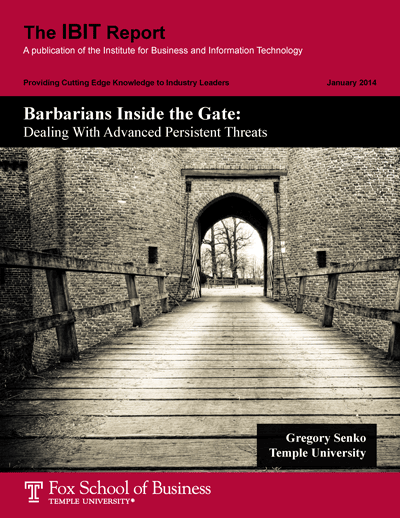
 Jonathan Brassington has a resume that would make any aspiring IT professional swoon, yet over the phone his demeanor is disarmingly humble. “I never attribute anything to myself,” he said, when asked what he considered the primary impetus to the success of his tech consulting firm, LiquidHub. “I’m the steward of culture as the CEO, but the entire organization has innovation in their DNA.”
Jonathan Brassington has a resume that would make any aspiring IT professional swoon, yet over the phone his demeanor is disarmingly humble. “I never attribute anything to myself,” he said, when asked what he considered the primary impetus to the success of his tech consulting firm, LiquidHub. “I’m the steward of culture as the CEO, but the entire organization has innovation in their DNA.”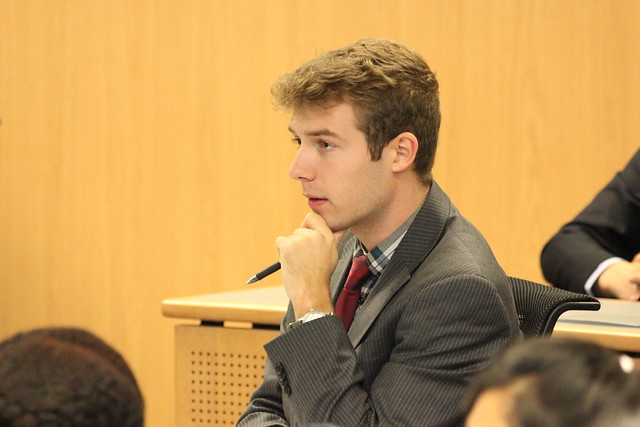




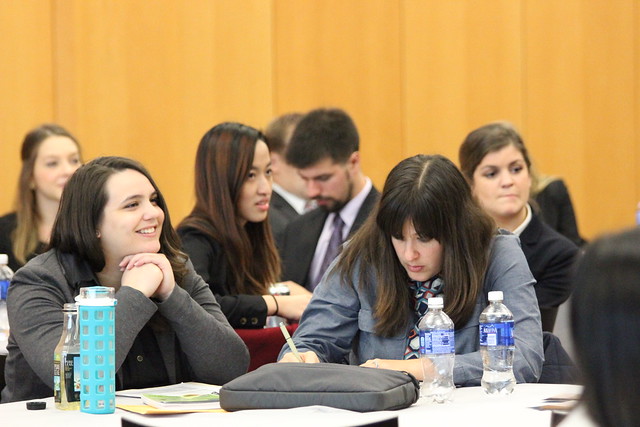



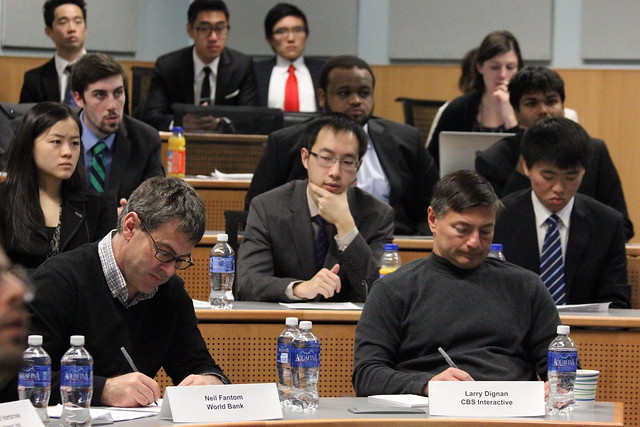
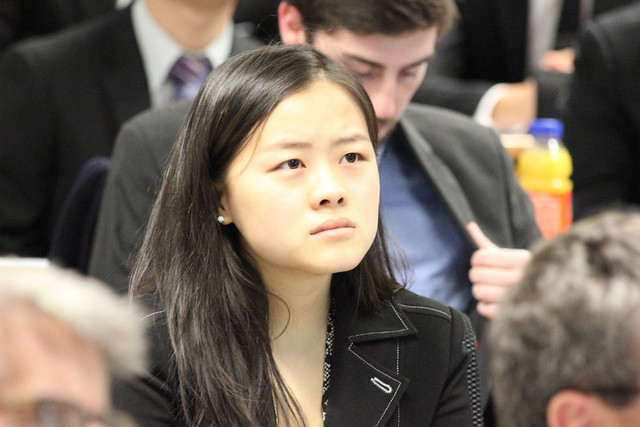
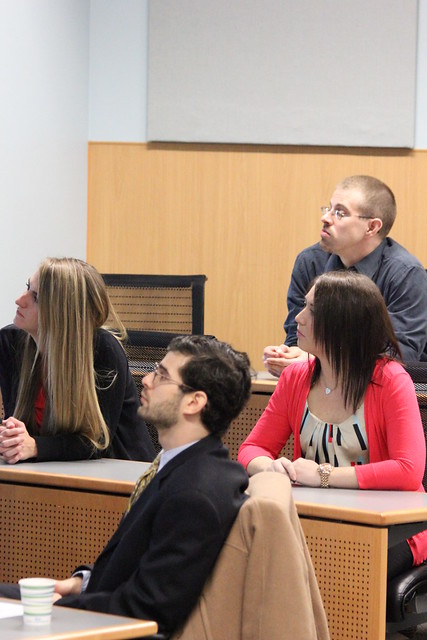





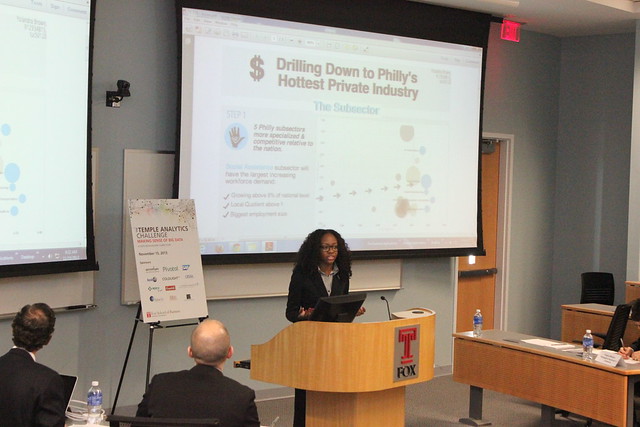

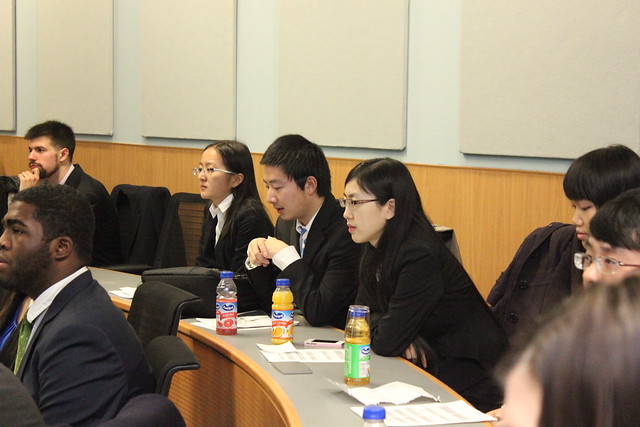
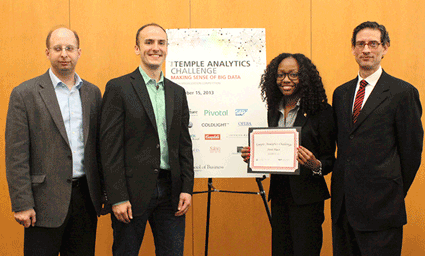 “I was shocked, happy, and I realized I won all the money to myself,” said Brown, who worked alone. She plans on putting the winnings toward a car she hopes to purchase upon graduating in May.
“I was shocked, happy, and I realized I won all the money to myself,” said Brown, who worked alone. She plans on putting the winnings toward a car she hopes to purchase upon graduating in May.

